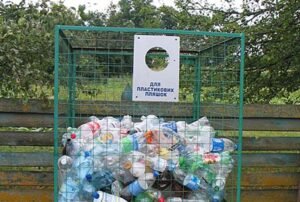August 21, 2015; Devex
Devex’s Jeff Tyson profiles Sharon Cohn Wu, a lawyer at the International Justice Mission, in an article that has specific relevance to NPQ’s previous coverage of the discredited foundation established by Somaly Mam to help young girls caught in the horror of the commercial sex trafficking industry. Cohn Wu is just one, though an extraordinarily impressive example, of the many people who have been doing the work of countering sex trafficking and human trafficking without the celebrity headlines and celebrity downfalls of efforts like Mam’s. In the article, Cohn Wu talks about her experience in dealing with sex trafficking in Cambodia, Thailand, and the Ivory Coast, providing help to young girls who wanted to get out of their exploitative predicaments but, until contacted by Cohn Wu and her IJM colleagues, might not have imagined that they had any means of doing so.
It is difficult to read about sex trafficking because for many of us, the stories involve abusers whose treatment of these innocent girls is unfathomable. But it is real. A Harvard Law graduate, Cohn Wu had been working at Arnold & Porter on international trade issues, not international human trafficking. After moving to IJM, she notes in retrospect, “I don’t actually think there would have been much that would have well prepared me for the brutality associated with people owning other people.” She describes the “redundancy of humiliation” that the victims of sex trafficking shared with her, which Tyson summarizes as “lining up half naked for customers and suffering beatings from their ‘owners’ if they were tired, or if a customer complained that they didn’t smile while being abused.” As seen by Cohn Wu, “It almost would make you think there was a manual written about how to break down and really crush a person’s sense of self.”
What Cohn Wu, described by her colleagues as “nonflashy” and “focused,” also does is address the public justice systems in these countries, which often favor the rich and, in places like Cambodia, the pimps and brothel-owners, who may be connected to and protected by the police. Saving the girls is critical, but the process must be accompanied by transformation of justice systems. Tyson reports that Cohn Wu and her colleagues partner with people in the local justice systems to rescue victims and simultaneously identify “weaknesses in the public justice system and work…to address them by providing resources and developing levels of accountability.” In Cambodia, the results include amending the legal framework for anti-trafficking “to allow for easier prosecution of both foreign and Cambodian perpetrators and new child-friendly procedures…in the courts…[and a new] national plan of action to combat trafficking…put in place earlier this year which, among other priorities, called for the expansion of undercover operations to catch perpetrators.”
Sign up for our free newsletters
Subscribe to NPQ's newsletters to have our top stories delivered directly to your inbox.
By signing up, you agree to our privacy policy and terms of use, and to receive messages from NPQ and our partners.
Although Cambodia is still among the worst countries regarding sex trafficking, Cohn Wu sees significant improvements. “Seeing the extraordinary transformation in how the justice system in Cambodia is addressing the commercial exploitation of children has been a huge encouragement and motivator for me,” Cohn Wu said. “Doing this work can be discouraging at times, but what we’ve seen in Cambodia over the past decade or so with a drastic reduction in the availability of minors in the sex industry proves that justice for the poor is truly possible.”
Cohn Wu’s work is truly difficult. For most of us, it’s beyond anything in our experience. But it is essential, and not just for the purpose of helping these young girls escape their lives of horrible exploitation. IJM co-founder Gary Haugen says eradicating sex trafficking is one of many actions needed to more comprehensively address the violence and chaos that undermines efforts to eradicate global poverty:
“For those who care about poverty alleviation and economic development for the global poor, the facts and data will no longer allow us to carry on as if the locusts of violence are not laying waste to our efforts,” writes Haugen and co-author Victor Boutros in The Locust Effect. “Slowly but surely, deep experience and significant data is accumulating to clarify the way common lawless violence is devastating the efforts of the poor to carve out a better future in the developing world.”
Haugen concludes, “The path forward is really pretty clear,” Haugen says. “We have to start making stopping violence indispensable to the fight against poverty. In fact, any conversation about global poverty that doesn’t include the problem of violence must be deemed not serious.” That would seem to apply to violence anywhere—here, as well as in developing countries. Hopefully, people will take heed of the courageous work of Sharon Cohn Wu and the context described by Haugen.—Rick Cohen













